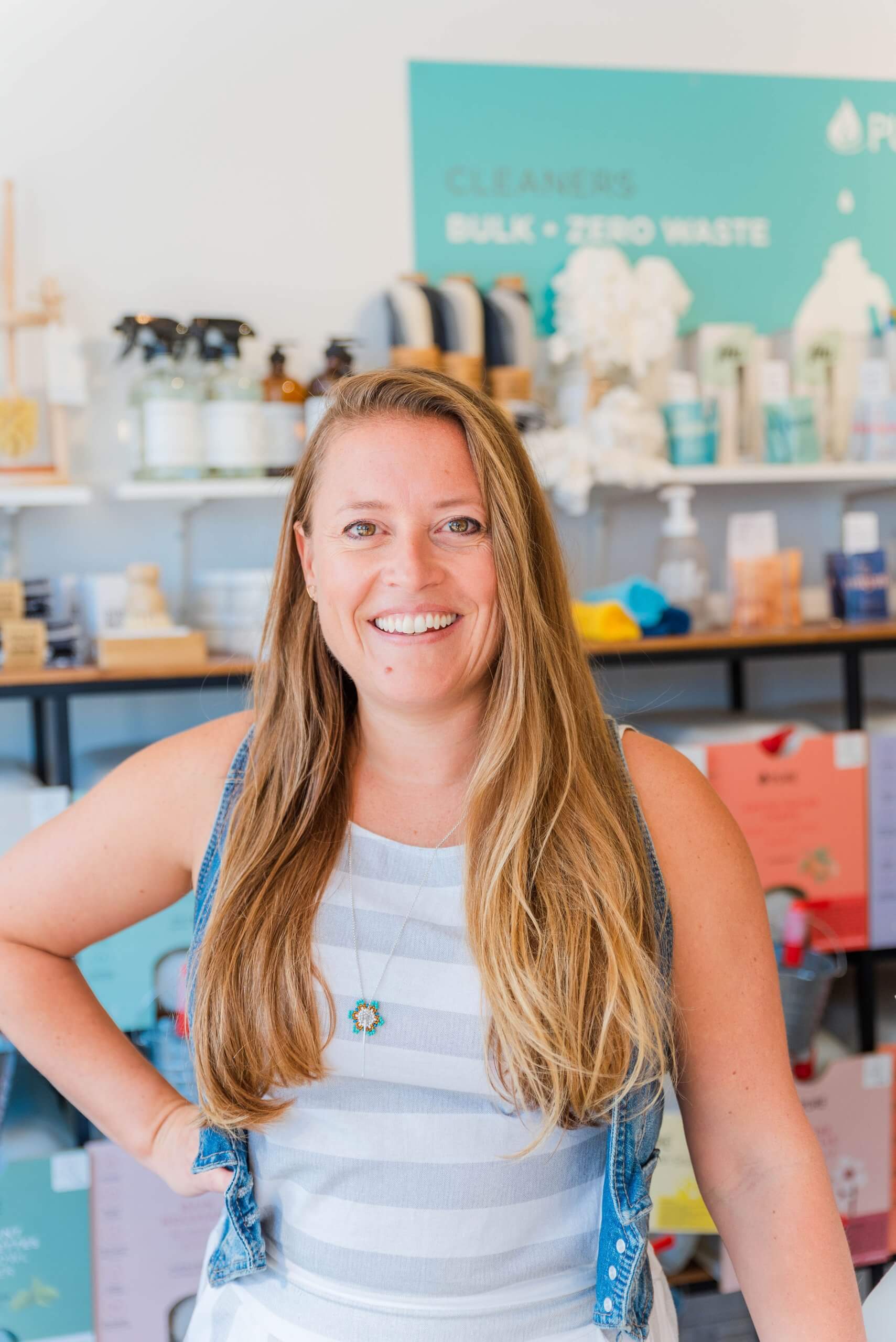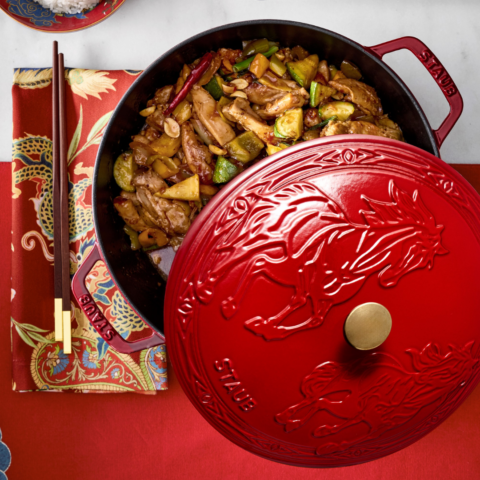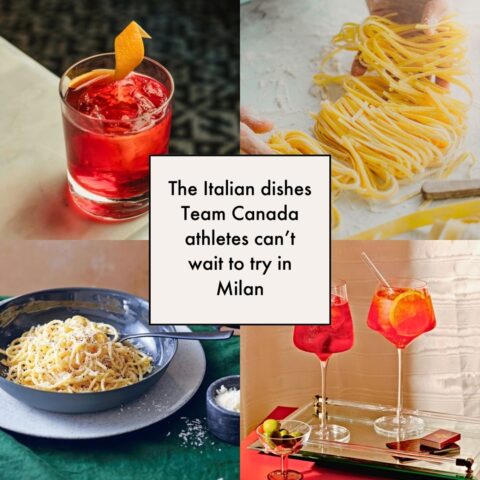Three years ago, I decided to walk away from my career as a producer with EntertainmentOne and open a small bulk store in Creemore, Ontario. It seemed to me like a choice made out of necessity: a trip to film a documentary in the slums of Nairobi had opened my eyes to how dire the plastic crisis is. Everywhere I turned, there were mountains of plastic – much of it from North America.
When I got home, I immediately started making changes, but I just couldn’t shake the feeling that I was leaving a larger carbon footprint than I’d like. My husband and I decided to take things into our own hands, and The Keep Refillery was born. The idea is that customers will never have to throw away another container ever again – instead, they bring them in and fill them with sustainably-sourced products, sold bulk-style.
Recycling has come a long way, but according to the Organization for Economic Co-operation and Development (OECD), only 9% of the world’s plastic is actually being recycled. That water bottle? Well, it will take 450 years to break down in the ocean. Ultimately, the waste becomes micro-plastics that seep into the earth and groundwater, all the while contributing to greenhouse gas emissions.
The Keep wants to empower consumers to make sustainable choices, and it starts at home. Here are 10 super easy ways to eliminate the needless waste that your kitchen produces.
1. Take a hard pass on packaging
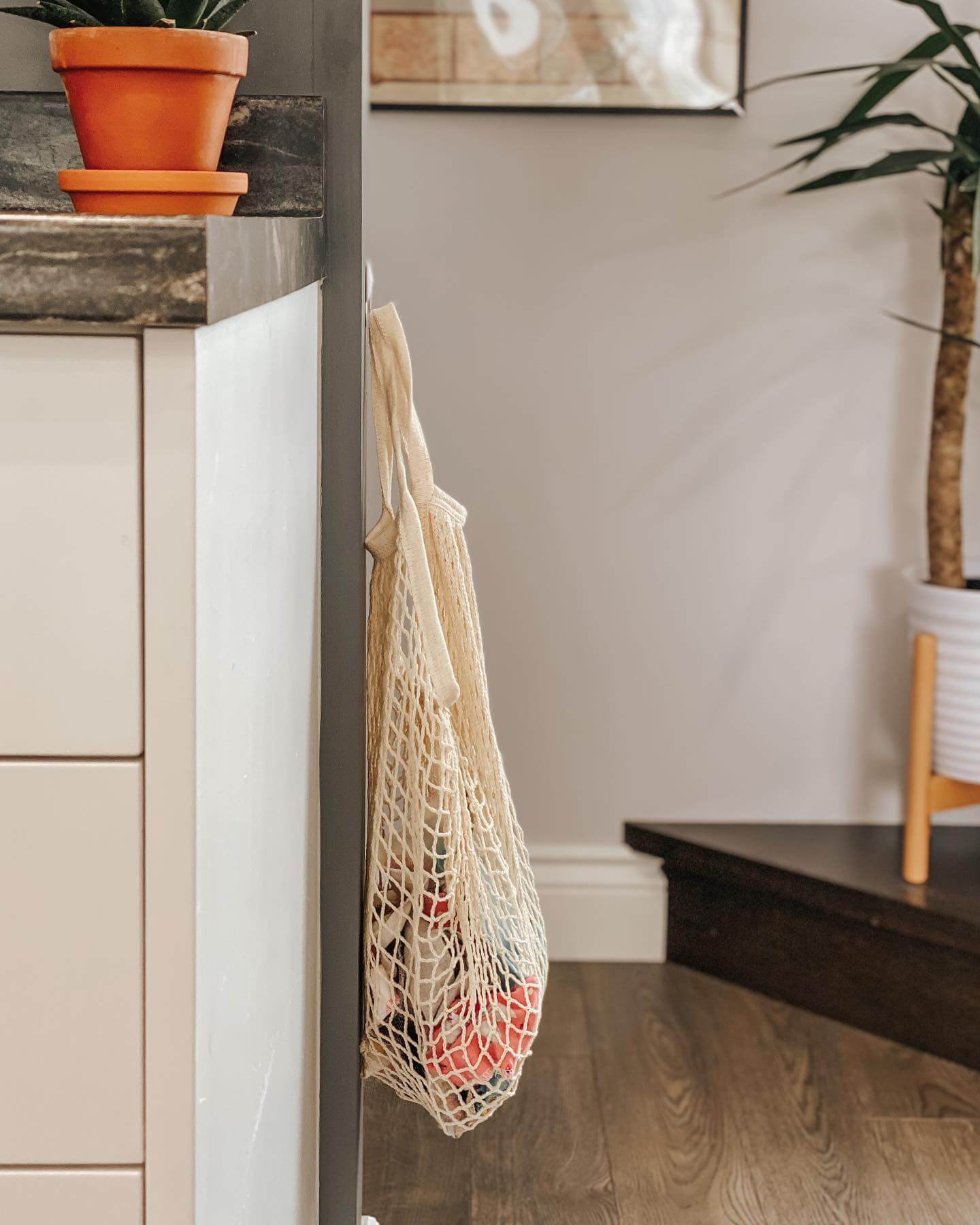
Start taking note of the way items you purchase at the grocery store are packaged and make swaps where possible. Instead of grabbing that plastic clamshell of lettuce, try the head of lettuce right beside it and put it in a reusable produce bag. When packaging is unavoidable, opt for products that come in cardboard, glass or aluminum – these are highly recyclable materials.
2. Make your list locals-only
When you’re considering a purchase, ask yourself these questions: Where was this made? Where will this go when I’m finished with it? It’s important to consider the industrial waste associated with buying a product that comes from far away, or will require transportation to dispose of. Always look for products with a local life cycle.
3. Take that trash to task
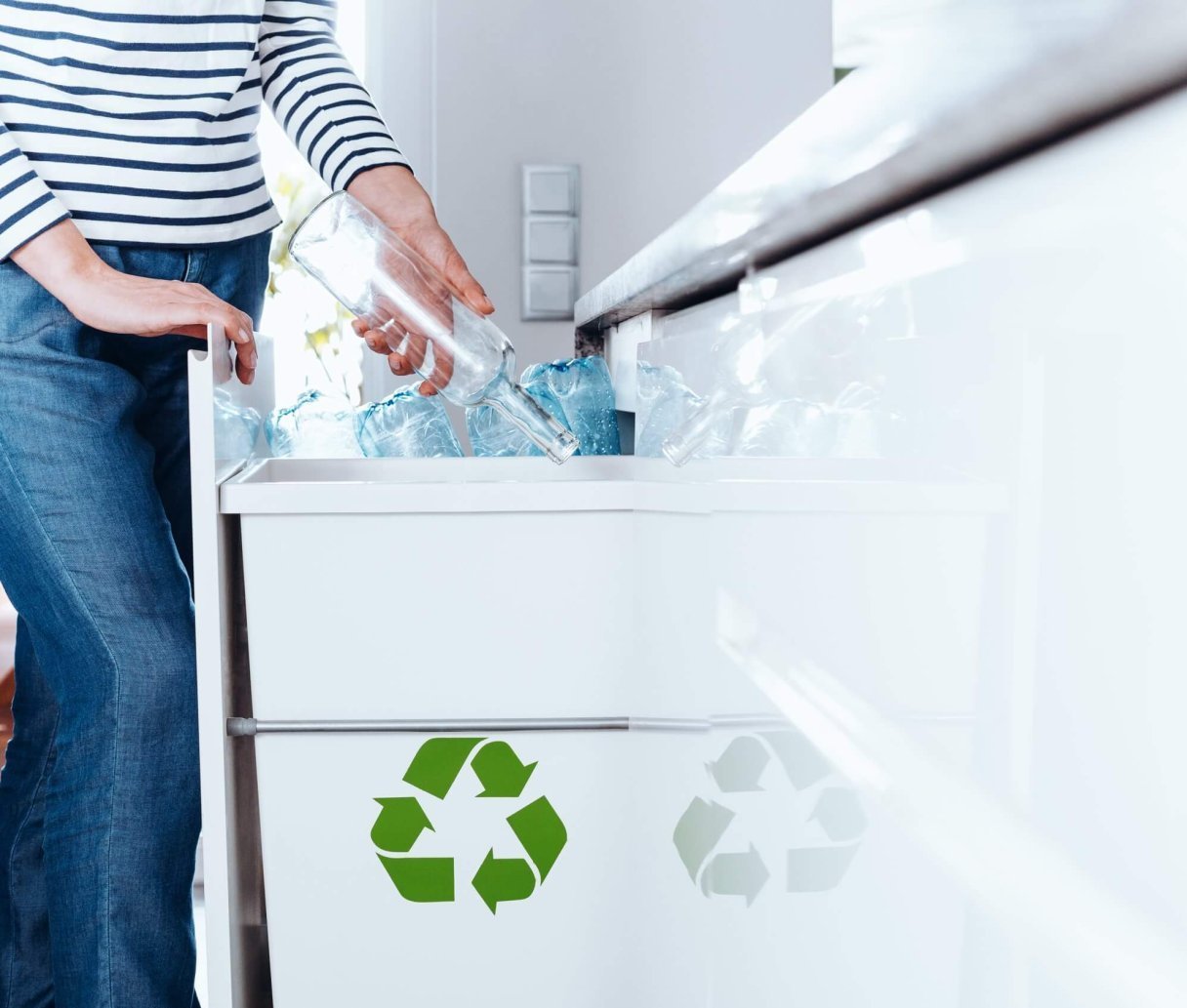
Do a bin audit to give you an idea of what can be avoided, recycled or composted among your waste. It’s not a quick process, but let me tell you – I did it the other day, and I felt so proud! There wasn’t any plastic packaging in my bin – it was all glass, aluminum or cardboard.
4. Refill, don’t landfill
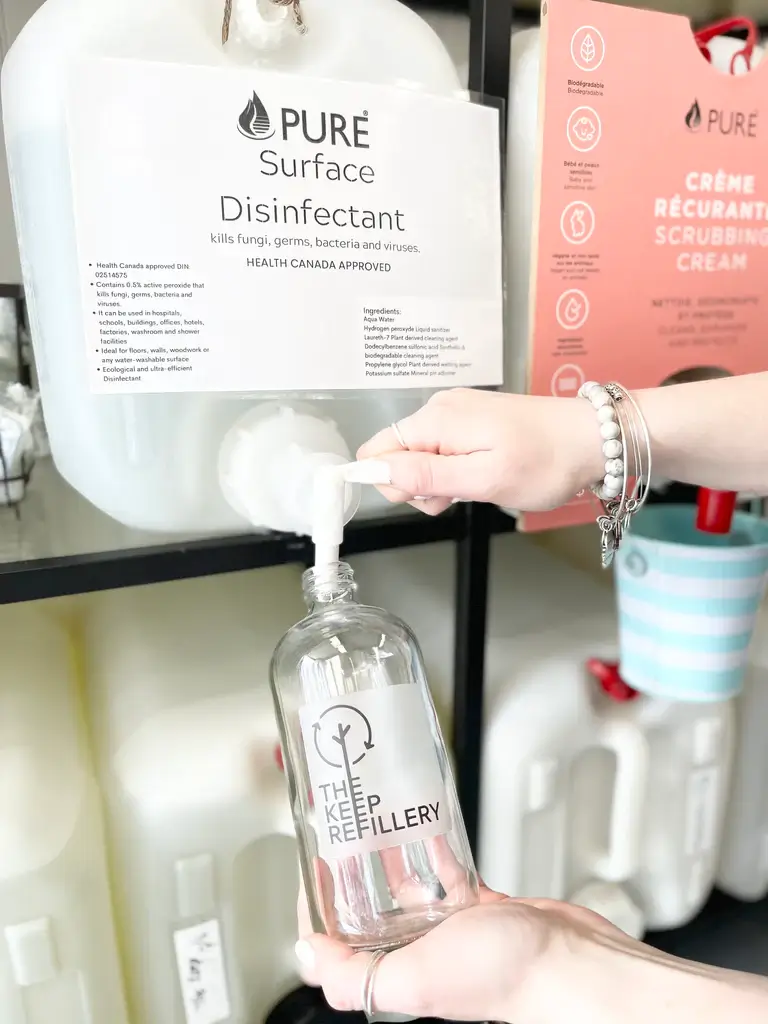
Whenever possible, refill containers at bulk stores or ‘refilleries’. The more planning you can do, the better. Don’t do all your refills at the store – keep large containers of refilled dish soap, hand soap and so on under the sink and use those to refill your cute dispensers on the countertop. When you’re out of the product below the sink, it’s time to refill at the store.
The Keep Refillery has four locations across Ontario:
If you’re in Calgary, check out Without Co. – Michelle, the owner, is super dedicated to removing single use plastic from her whole operation.
5. Be a composting queen
Eight percent of GHG (greenhouse gases) come from wasted food. Even if you don’t live somewhere that collects compost, you may want to consider composting at home. The soil it creates is incredible for your gardens.
6. Solidify your cleaning routine
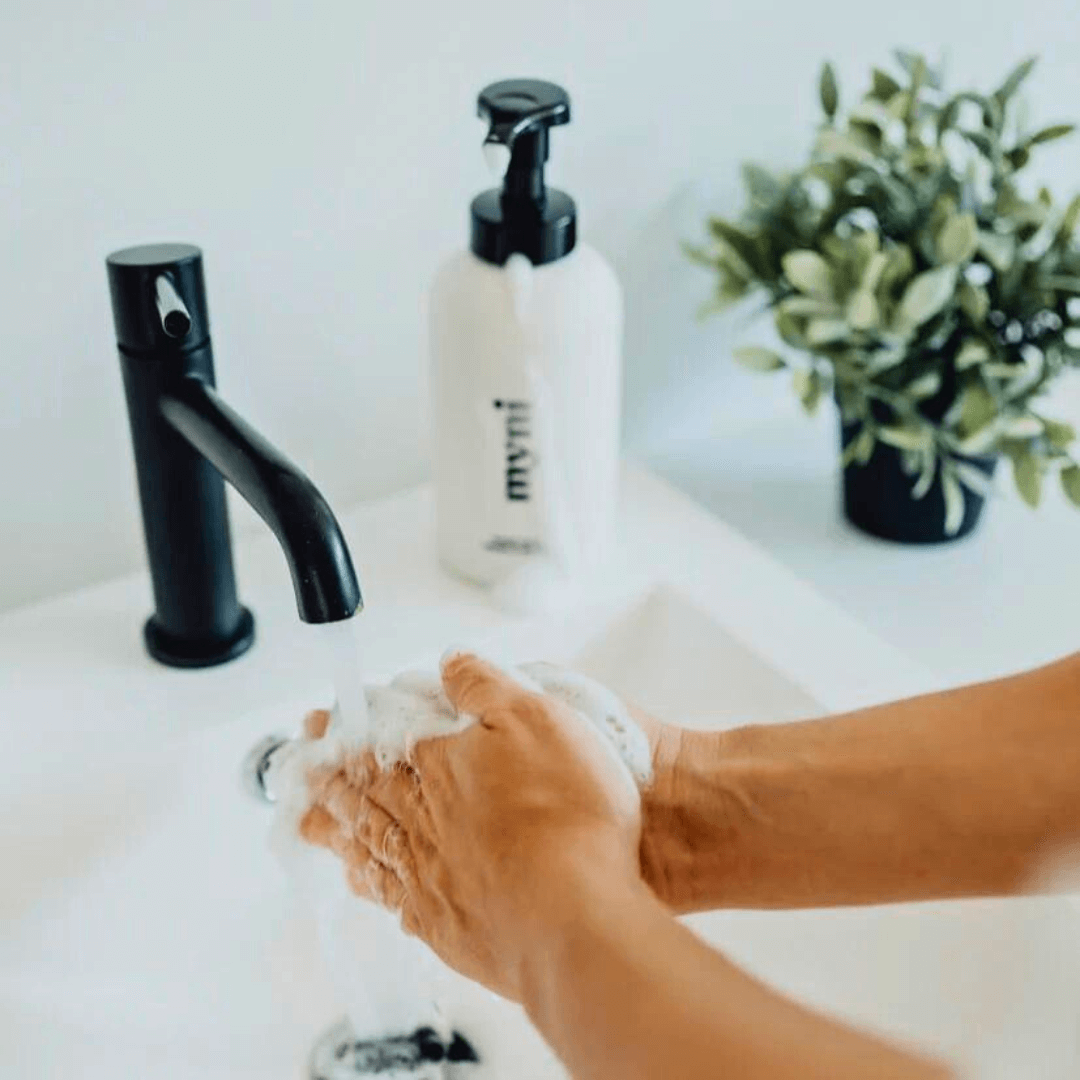
Liquid soaps and cleaners produce a ton of waste. They usually come in single-use plastic bottles, and they also contain water, which is heavy and increases the carbon emissions required for transport. Go for lightweight water-free soap tabs and stock up on a bunch at once.
At the Keep, we’re obsessed with the cleaning tablets from Myni. Simply take the tablet, put the tablet in a spray bottle and add water. They sell everything from foaming hand soap to stainless steel cleaner.
7. Ditch the disposable threads

To get paper towels, we cut down trees, process them, bleach them, wrap them in plastic and then ship them so people can wipe up some spilled juice and toss it away. Gross, right? Use Unpaper Towels. Simply wipe up the mess, toss it in a load of laundry and reuse. Let the trees live and do what they do best.
8. Bamboo brushes are your bestie
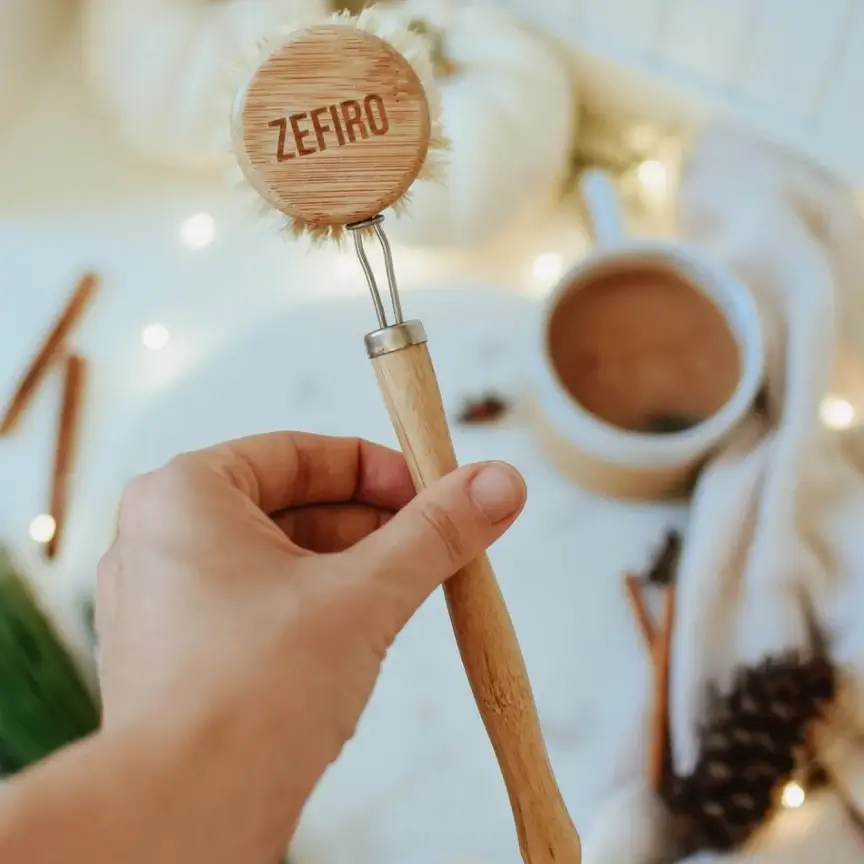
Bamboo is one of the most sustainable and renewable materials grown on earth! Reconsider those yellow sponges and plastic pot scrubbers and use Bamboo Cleaning Brushes instead.
9. Stick it to waste with silicone mats
Instead of using parchment paper (which is not recyclable due to the coating on the paper) try these incredible silicone baking mats. They eliminate anything from sticking to your pans and have NO WASTE! You can also use these for baking chicken, fries, fish and all the good stuff that typically sticks to your baking sheets.
10. That’s a wrap
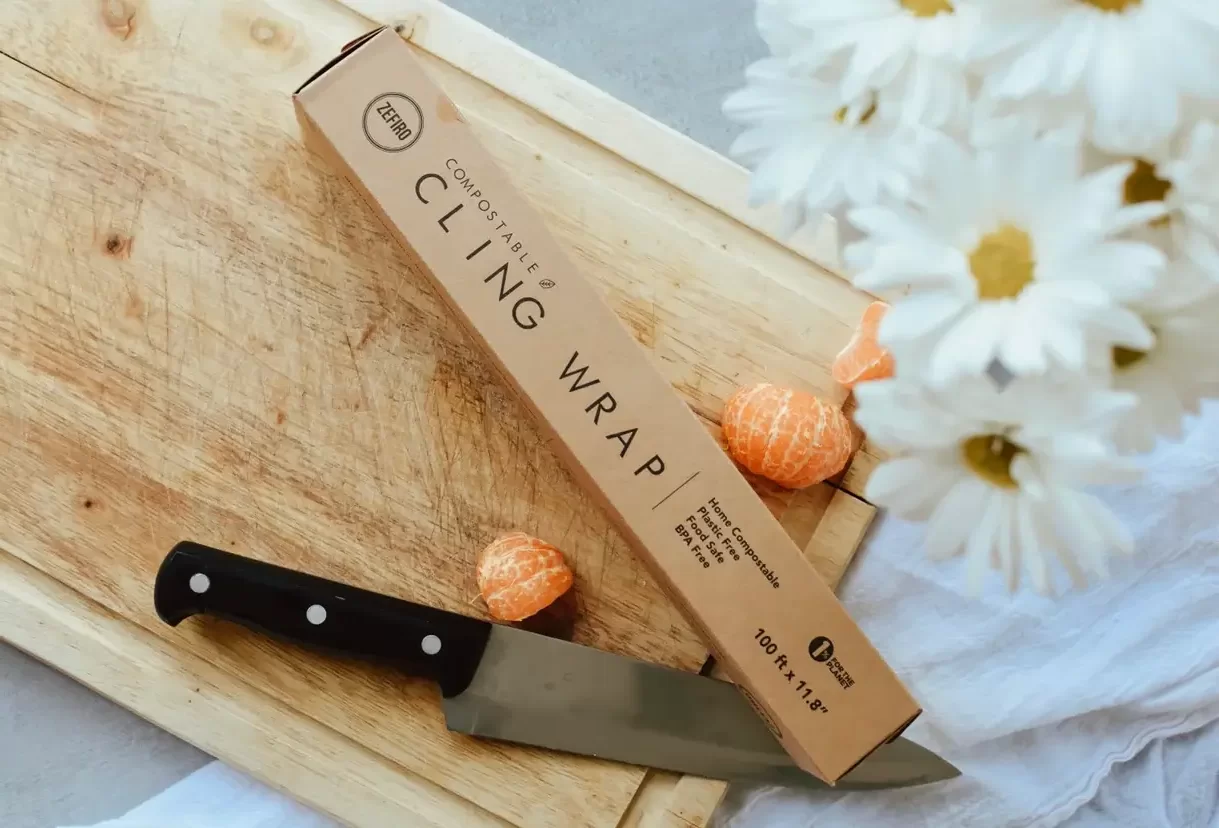
Think about your own packaging habits and swap plastic wrap for a reusable alternative. One of my favourite products is the Abeego Wax Wrap. These are highly malleable and can wrap or cover just about anything. You can also try a compostable cling wrap – instead of being made of plastic, it’s made of plant-derived materials that break down in most municipal composting facilities.

